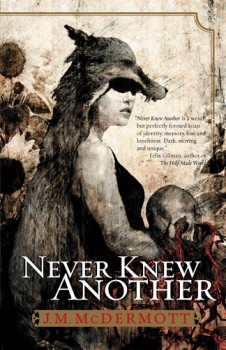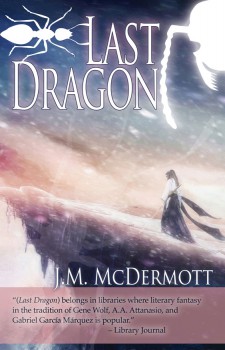We Live In Small Worlds
 Traveling around the world in eighty days is not only quite possible, but a leisurely journey. One could, on this trip, stop to smell the roses, perhaps do a little sight-seeing on an island or two, and pursue adventure in remote locations. Really, if one were pressed for time, anyone with a passport and a few plane tickets could circumnavigate the globe in about a week or two, depending on the flight paths of the planes.
Traveling around the world in eighty days is not only quite possible, but a leisurely journey. One could, on this trip, stop to smell the roses, perhaps do a little sight-seeing on an island or two, and pursue adventure in remote locations. Really, if one were pressed for time, anyone with a passport and a few plane tickets could circumnavigate the globe in about a week or two, depending on the flight paths of the planes.
Before planes, trains, and automobiles, I wonder at the size of the world. I think of all things not as objects divorced from the shifting perspectives of humanity, singular and solid and weighty, but as objects that are shaped primarily and inextricably from the experience of the object. To me, the moon is a slip of paper always out of reach until the day an astronaut landed upon it, becoming soil and sizable stone. To me, the woods and the wild places of the world are forever out of reach, an imaginary landscape where alien life forms like bears and monkeys inhabit the world according to my television screen, where men with cyclopean-eyed tentacles of cameras and wires carry our hyperreal lens into the forested hills beyond the suburbs.
My apartment, down to its tiniest detail, is in many ways a larger space, to me, than all of the Himalayas. What I experience and what I feel, are my life, and the objects and places that are physically present in that life are the ones that are larger to me than ones in the distant horizon, imagined and mythical in its telling, but not really impactful to me in a tangible way. I live in a world that’s defined by how far I can travel in about half a day. My parents’ house is about half a day away by car and plane. My sister’s house, as well. My fiancée lives about forty minutes by car, and together we explore the landmarks and points of interest between us. This is my whole world.
The point of all this is to say that in writing a world, the experience of that world is tied not to the size and shape of stones, hills, but to the experience of them.
When I write fiction, the world is built that way. I like to focus on the details that are experienced. The mythic things – the Himalayas – are beyond the horizon and ergo huge or small or anything at all but part of the experience of the characters. When I was writing Never Knew Another, and her two sequels, I spent months writing just scenes, open-ended and not moving towards any destination. I put characters in a space and felt out their world. I let them talk to each other. I let them experience. Much of this is not used in the final text, but some of it remains in one fashion or another, adjusted and upended and spun around.
 Life is a series of very small moments placed into a chain of very large moments. Memories jumble those moments into a sea where emotional triggers and blurred images drift the timelines of things into a spaghetti monster. What is remembered, then, is the experience of things, in total and all-together. The memories of the mind form a kind of globe of self, non-linear and full of bumps and valleys and cities named for the famous people of one’s life – Mother, being the capitol, perhaps. If one could hold a mind in the hand and map it out, it would be built upon the merging and dividing lines not of time or location but of experience, and to journey across that mind would be like travelling the world in eighty days. A jumble of vehicles, a mass of bodies pressing into each other or falling away, a race against the crushing torpor of solipsism, scenes without settings or with too much setting or with too much self, an adventure strung together in spaces and places that have little relation to each other beyond the line of the experiential sense of relation, one thing to another.
Life is a series of very small moments placed into a chain of very large moments. Memories jumble those moments into a sea where emotional triggers and blurred images drift the timelines of things into a spaghetti monster. What is remembered, then, is the experience of things, in total and all-together. The memories of the mind form a kind of globe of self, non-linear and full of bumps and valleys and cities named for the famous people of one’s life – Mother, being the capitol, perhaps. If one could hold a mind in the hand and map it out, it would be built upon the merging and dividing lines not of time or location but of experience, and to journey across that mind would be like travelling the world in eighty days. A jumble of vehicles, a mass of bodies pressing into each other or falling away, a race against the crushing torpor of solipsism, scenes without settings or with too much setting or with too much self, an adventure strung together in spaces and places that have little relation to each other beyond the line of the experiential sense of relation, one thing to another.
Is this as interesting as a carefully orchestrated plot, spinning characters and elements like the gears of a clock?
You tell me.
If anything I have said is of interest to you, I encourage you to investigate Never Knew Another for yourself, and see if this thought-process has a place in your world. To my mind and experience, one of the failings of the current mode of fantasy fiction is the urge to keep our stories upon the landscapes that are drawn upon imaginary maps of land, instead of also embracing the stories that are drawn upon the imaginary maps of minds.
[…] on Talking Trees and Killer Spores: The Flora of Science Fiction and Fantasy.J.M. McDermott on We Live In Small Worlds.Juliette Wade on Leading into a scene vs. including backstory.Nicola Griffith on Ebook […]